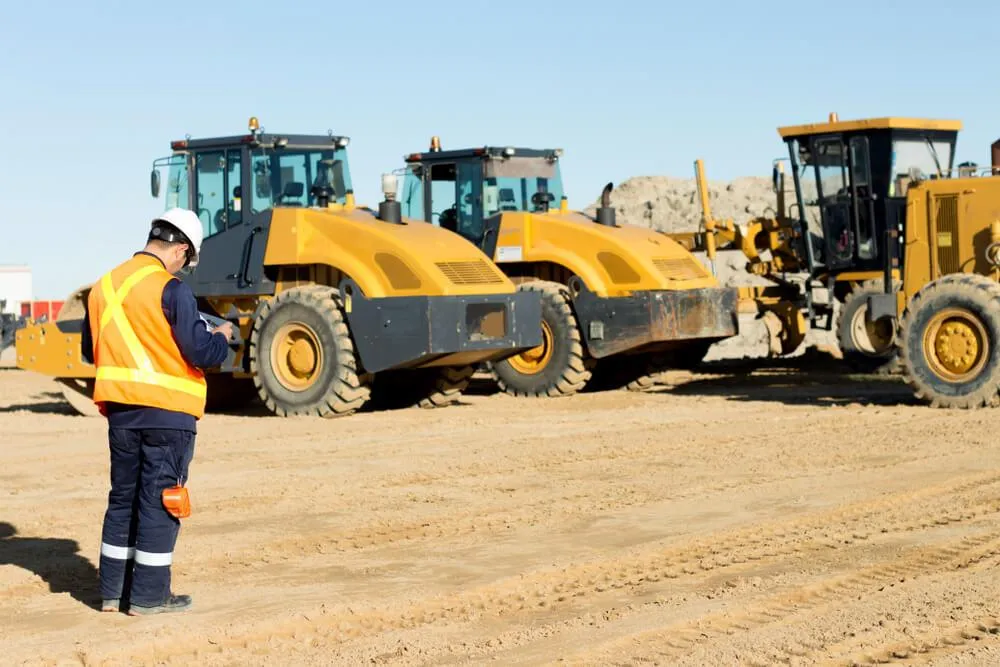Site Inspections

Why should site inspections include verifying equipment operator qualifications?
Why are site inspections important? Why should they include verifying equipment operator qualifications? Keep reading to learn some answers to these questions and more.
What can a site inspection entail?
The details of a site inspection can and should vary from industry to industry. After all, no job site, project or facility is exactly the same. Yet there are certain aspects that are typically a part of most site inspections, and some of these aspects include:
Inspecting facilities for safety requirements.
Corrosion inspections.
Equipment performance evaluations.
Testing safety devices.
Inspecting and installing fall protection equipment.
Performing audio, visual and olfactory inspections of the site.
Checking the qualifications of equipment operators.
Why is it important for an equipment operator to be qualified?
Safety of workers — It’s important for an operator to be qualified because it correlates to the competency of the operator. It decreases the risk of injury and death from improper use.
Decreased liability — Employing an operator with the proper qualifications can reduce company liability. In cases where legal action might be pursued against your company, it is a good idea to have a licensed operator.
Efficiency and accuracy — Using an accredited operator can boost workplace efficiency and productivity.
What are equipment operator qualifications?
The U.S. Department of Labor’s Occupational Safety and Health Administration (OSHA) lists several of the qualifications needed to operate heavy machinery and equipment. According to OSHA’s list of requirements, these are a few of the stipulations for equipment operation:
Accreditation must be reviewed every three years by a nationally recognized accrediting agency.
A worker who is not licensed to operate equipment and heavy machinery can only use the equipment as an operator-in-training. They must be under supervision during operation.
Operators of derricks, sideboom cranes, or equipment with a maximum manufacturer-rated lifting capacity of 2,000 pounds or less do not have to comply with operator qualifications.
Need help training and maintaining credentials for your equipment operators? Basin Safety can help
Basin Safety could be the perfect fit for your business, if you’re looking for professional assistance in mitigating risk of injury and liability and addressing employee safety. We’re committed to helping companies build a list of their own safety goals and helping them achieve those goals. We also believe in the power of safety metrics, providing adaptive training, promoting safety culture and supporting our customers’ vision.
Contact us today to speak with one of our consultants about all our safety and compliance services.
Archives
Categories
Benzene Testing
Bloodborne Pathogens
Breathing Air Systems
Certification Process
Confined Space Attendants
Confined Spaces
Construction Equipment Operators
Electrical
Environmental Compliance
Excavation and Trenching
Fire Extinguisher Training
Forklift Operator
Hazcom Workplace Safety
HAZWOPER
Hearing Protection Training
Heavy Equipment
Hydrogen Sulfide
Lone Worker
Lone Worker Solutions App
Monitoring
Oil and Gas
Oil Drilling
Online Training Confined Spaces
Permit-required
PPE
Radiation Safety
Rescue Equipment
Rescue Team
Safety Consultants
Safety Devices
Safety Tracking
Safety Training
Site Inspections
Training 1
Training 2
Training 3
Training 4
Training 5
Uncategorized
Virtual Access to Safety Data
Waste Haulers
LINK LIST
Training
Consulting
Field Services
Partnerships
Compliance
Resources
VISIT US
4401 16th Avenue West Williston, ND 58801.
2740 Sims Street Suite B Dickinson , ND 58601
(701) 572-8140

BASIN SAFETY CONSULTING CORPORATION
Basin Safety believes in shared excellence. We are accountable to our core values:
● Pioneering Excellence Everyday
● Supporting each other to put customers first
● Asking the right questions, to ensure the greatest results.

BASIN SAFETY CONSULTING CORPORATION
Basin Safety believes in shared excellence. We are accountable to our core values:
● Pioneering Excellence Everyday
● Supporting each other to put customers first
● Asking the right questions, to ensure the greatest results.
VISIT US
4401 16th Avenue West Williston, ND 58801.
2740 Sims Street Suite B Dickinson , ND 58601
(701) 572-8140
LINK LIST
Training
Consulting
Field Services
Partnerships
Compliance
Resources